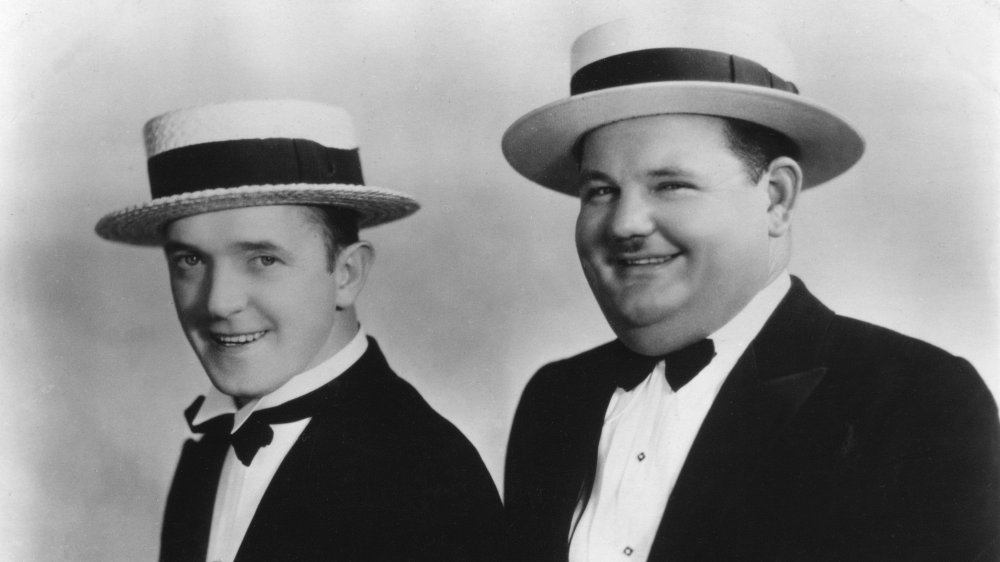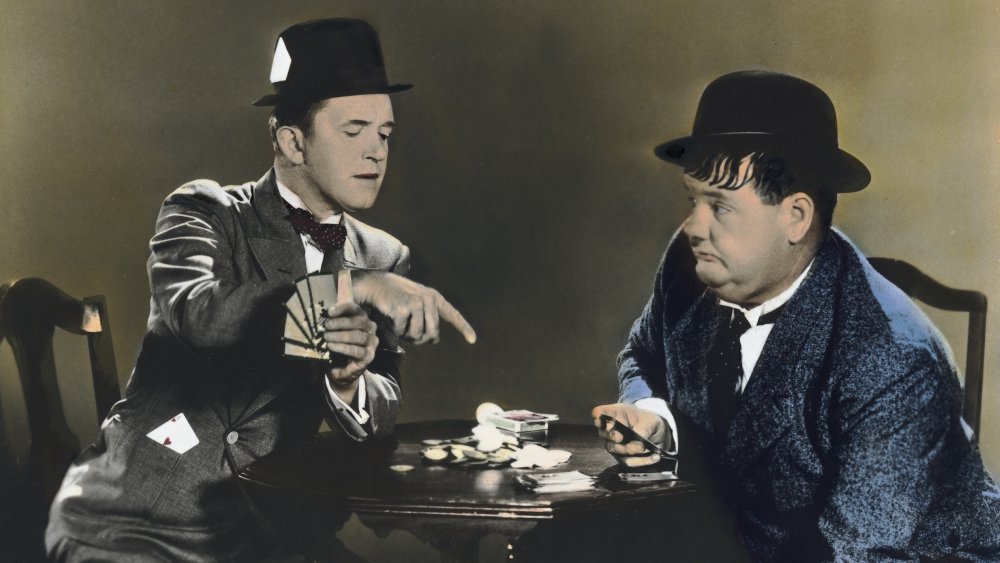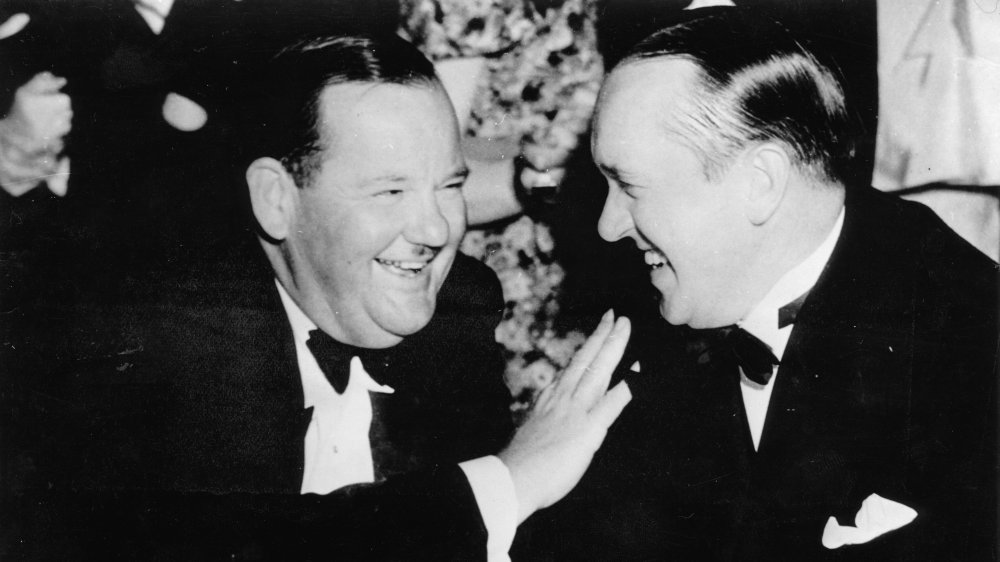Eighty years after their heyday, Laurel and Hardy remain icons of comedy. Few performing acts successfully transitioned from the Silent Era into the age of sound, but Oliver Hardy and Stan Laurel used a combination of visual contrast — the rotund and imposing Hardy standing next to the thin, angular Laurel — peerless physical comedy, and sharp comic timing to become one of the most popular comedy acts of the 1930s.
Those comedy fundamentals have allowed the duo to endure in popular culture long after their death. After winning an Academy Award for Best Live Action Short Subject for 1931's The Music Box, the comedy team proceeded to make hit after hit during the 1930s, mostly working in short films of forty minutes or less. After changing film studios in the early 1940s, their popularity fell (along with the perceived quality of their films), but television kept them in the public eye and ensured their work would never be forgotten.
As is often the case with our funniest performers, however, the lives of Stan Laurel and Oliver Hardy were hardly free from tragedy and sorrow. In fact, as the tragic history of Laurel and Hardy will show, they might have had more than their fair share of both.
OLIVER HARDY LOST HIS FATHER AND BROTHER

Norvell Hardy was born in Georgia in 1892. As noted by the encyclopedia Britannica, his father, Oliver Hardy, died just a few months after his birth. His mother supported the family by managing hotels and boarding houses. Sometime in his teenage years, Hardy began using the name Oliver in honor of his father.
That wasn't the only loss Hardy suffered during his childhood. As the Union Recorder reports, when he was 17 years old, his older brother Sam visited home, and the brothers decided to go swimming at an old mill dam on the Oconee River. Sam, showing off for his kid brother, climbed a tree and dived into the river from an overhanging branch. Tragically, he misjudged the depth of the water and broke his neck on the rocks below the surface.
Oliver Hardy and his friends dived into the river and pulled Sam out. They carried him back to the hotel their mother ran, but it was too late: Sam was dead. Decades later, when Hardy appeared on the television program "This Is Your Life," he became very emotional when the subject was brought up, showing how much of a mark the loss left on the young boy.
STAN LAUREL LOST HIS MOM AS A KID

Stan Laurel was born Arthur Stanley Jefferson in 1890 in England. While Laurel had a relatively happy family life, as author Raymond Valinoti Jr. notes, he was frequently alone as a child. His parents were performers and theater managers, and they frequently traveled. They took their children with them — except Stan, who was weak and "sickly" as a child. Laurel wound up spending much of his childhood with his grandparents, George and Sarah Metcalfe.
According to Valinoti, the Metcalfes were kind to Laurel, but they were very strict, and he spent much of his time alone in a shack on their property being punished for one thing or another. Still, Laurel grew into a performer just like his parents, and he quickly began writing his own plays and pursued theater. While this initially disappointed his parents, who hoped Laurel would come work with them, they supported his dreams.
Then, when Stan Laurel was just 18 years old, tragedy struck: His mother, Madge, unexpectedly died. It's suspected she suffered from a respiratory illness made worse by the air quality in Glasgow, where the family had relocated. Laurel, who had discovered his father was cheating on Madge some years before, blamed his father for breaking his mother's will to live. According to his second wife, Virginia Ruth Rogers, Laurel was absolutely devastated by the loss of his mother, and in some ways, never recovered from it.
OLIVER HARDY WAS TEASED FOR BEING OBESE

Part of the magic that was Laurel and Hardy as a comedy act was their physical disparity. Stan Laurel's weepy, rail-thin figure next to Oliver Hardy's robust frame (he weighed more than 300 pounds for most of his life, per the Vintage News) was inherently charming to audiences. Hardy's weight was part of his identity, and also the cause of his health problems later in life.
Part of the magic that was Laurel and Hardy as a comedy act was their physical disparity. Stan Laurel's weepy, rail-thin figure next to Oliver Hardy's robust frame (he weighed more than 300 pounds for most of his life, per the Vintage News) was inherently charming to audiences. Hardy's weight was part of his identity, and also the cause of his health problems later in life.



